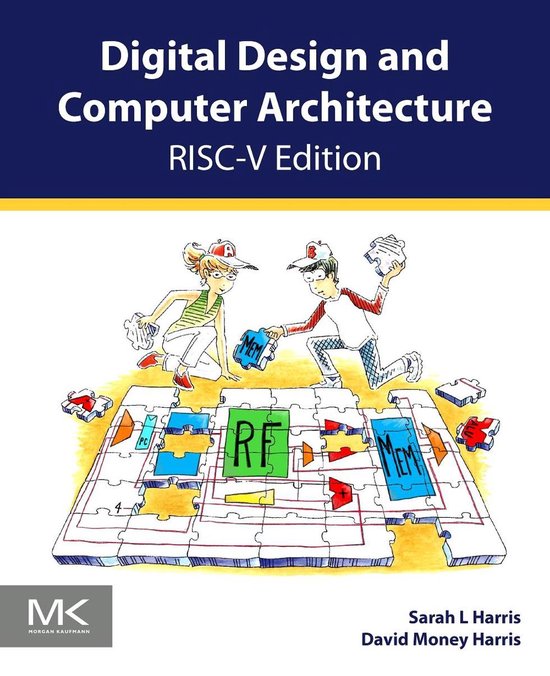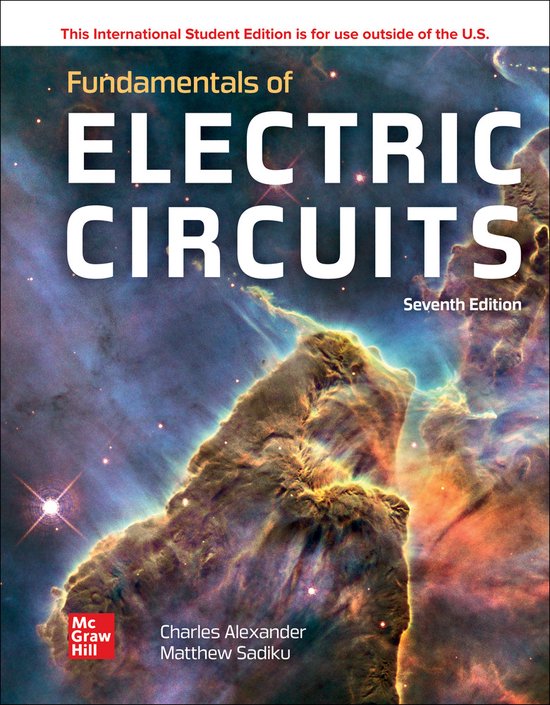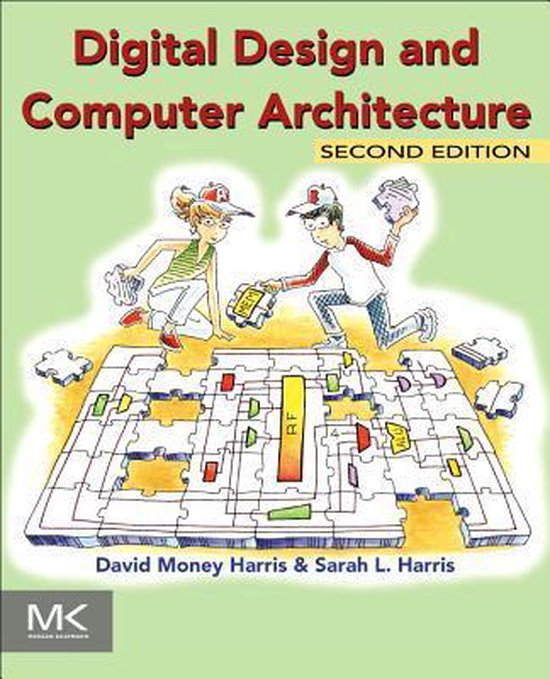Digital design and computer architecture risc v edition

Op voorraad. Voor 23:59 besteld, morgen in huis
The newest addition to the Harris and Harris family of Digital Design and Computer Architecture books, this RISC-V Edition covers the fundamentals of digital logic design and reinforces logic concepts through the design of a RISC-V microprocessor. Combining an engaging and humorous writing style with an updated and hands-on approach to digital design, this book takes the reader from the fundamentals of digital logic to the actual design of a processor. By the end of this book, readers will be able to build their own RISC-V microprocessor and will have a top-to-bottom understanding of how it works.
Beginning with digital logic gates and progressing to the design of combinational and sequential circuits, this book uses these fundamental building blocks as the basis for designing a RISC-V processor. SystemVerilog and VHDL are integrated throughout the text in examples illustrating the methods and techniques for CAD-based circuit design. The companion website includes a chapter on I/O systems with practical examples that show how to use SparkFun's RED-V RedBoard to communicate with peripheral devices such as LCDs, Bluetooth radios, and motors.
This book will be a valuable resource for students taking a course that combines digital logic and computer architecture or students taking a two-quarter sequence in digital logic and computer organization/architecture.
Covers the fundamentals of digital logic design and reinforces logic concepts through the design of a RISC-V microprocessor Gives students a full understanding of the RISC-V instruction set architecture, enabling them to build a RISC-V processor and program the RISC-V processor in hardware simulation, software simulation, and in hardware Includes both SystemVerilog and VHDL designs of fundamental building blocks as well as of single-cycle, multicycle, and pipelined versions of the RISC-V architecture Features a companion website with a bonus chapter on I/O systems with practical examples that show how to use SparkFun's RED-V RedBoard to communicate with peripheral devices such as LCDs, Bluetooth radios, and motors The companion website also includes appendices covering practical digital design issues and C programming as well as links to CAD tools, lecture slides, laboratory projects, and solutions to exercises See the companion EdX MOOCs ENGR85A and ENGR85B with video lectures and interactive problems- 1 Bekijk alle specificaties



Taal: en
Bindwijze: Paperback
Oorspronkelijke releasedatum: 03 november 2021
Aantal pagina's: 592
Illustraties: Nee
Hoofdauteur: Sarah Harris
Tweede Auteur: David Harris
Hoofduitgeverij: Morgan Kaufmann Publishers In
Product breedte: 191 mm
Product lengte: 235 mm
Studieboek: Ja
Verpakking breedte: 187 mm
Verpakking hoogte: 25 mm
Verpakking lengte: 233 mm
Verpakkingsgewicht: 906 g
eWaste: Nee
EAN: 9780128200643